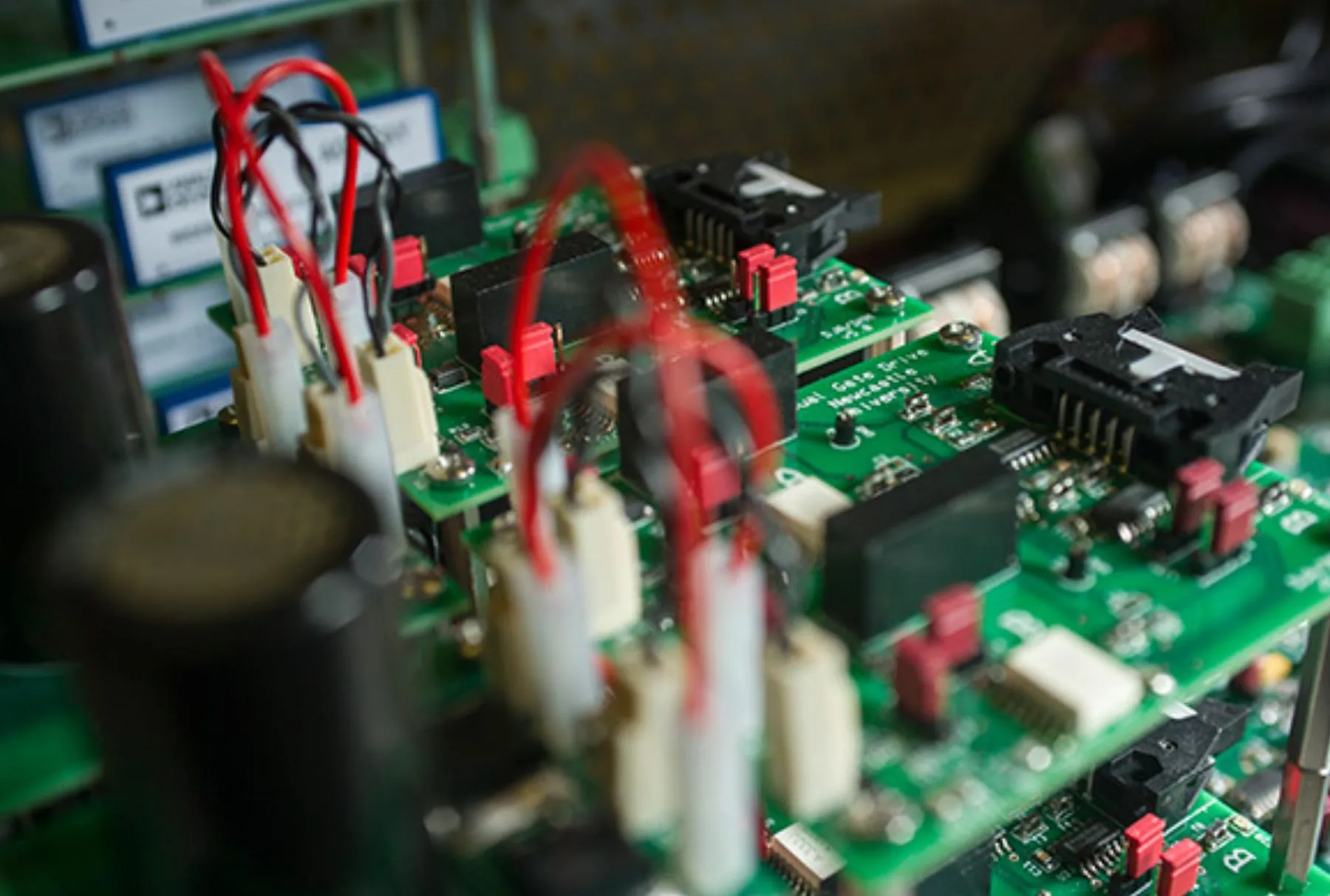
The M.E. in Power Electronics and Drivers program is designed to provide advanced knowledge and research skills in power electronic systems, converters, and motor drives. This program prepares students for leadership roles in industries related to power systems, renewable energy, and industrial automation.
The curriculum focuses on both theoretical foundations and practical applications in power semiconductor devices, converter topologies, control techniques, and industrial drive systems.
- Advanced coursework in power electronic converters and systems
- Specialization in electric drives and renewable energy systems
- Research-oriented program with thesis component
- Industry collaborations and internship opportunities
- State-of-the-art power electronics laboratory facilities
Duration: 2 Years (4 Semesters)
Eligibility: B.E./B.Tech in Electrical/Electronics/Power Electronics with valid GATE score
Course Fee: As per University Regulations
THE VISION
"To be a center of excellence in power electronics education and research, producing innovative professionals capable of designing efficient power conversion systems for sustainable energy solutions."
THE MISSION
- To provide advanced technical education in power electronics through innovative teaching and research methodologies.
- To foster industry-academia collaboration for developing efficient power conversion technologies.
- To promote energy-efficient solutions and renewable energy integration through power electronics.
- To contribute to the development of sustainable power electronic systems for industrial and societal applications.
The Department of Power Electronics and Drivers offers a comprehensive postgraduate program that combines theoretical knowledge with practical applications in power electronic systems and motor drives. Our faculty members are experts in their respective fields with extensive research and industry experience.
The program focuses on:
- Power semiconductor devices and their applications
- DC-DC, AC-DC, and DC-AC converter topologies
- PWM techniques and control of power converters
- Electric motor drives and their control
- Renewable energy conversion systems
- Power quality and active filtering techniques
Students have opportunities to work on cutting-edge research projects and collaborate with industry partners on real-world power electronics challenges.
- POWER ELECTRONICS CONVERTERS LAB
- ELECTRIC DRIVES LAB
- DIGITAL CONTROL SYSTEMS LAB
- RENEWABLE ENERGY SYSTEMS LAB
- POWER SEMICONDUCTOR DEVICES LAB
- POWER QUALITY ANALYSIS LAB
- HARDWARE-IN-LOOP SIMULATION LAB
- SMART GRID TECHNOLOGIES LAB
- HIGH VOLTAGE ENGINEERING LAB
- RESEARCH LAB FOR ADVANCED POWER ELECTRONICS